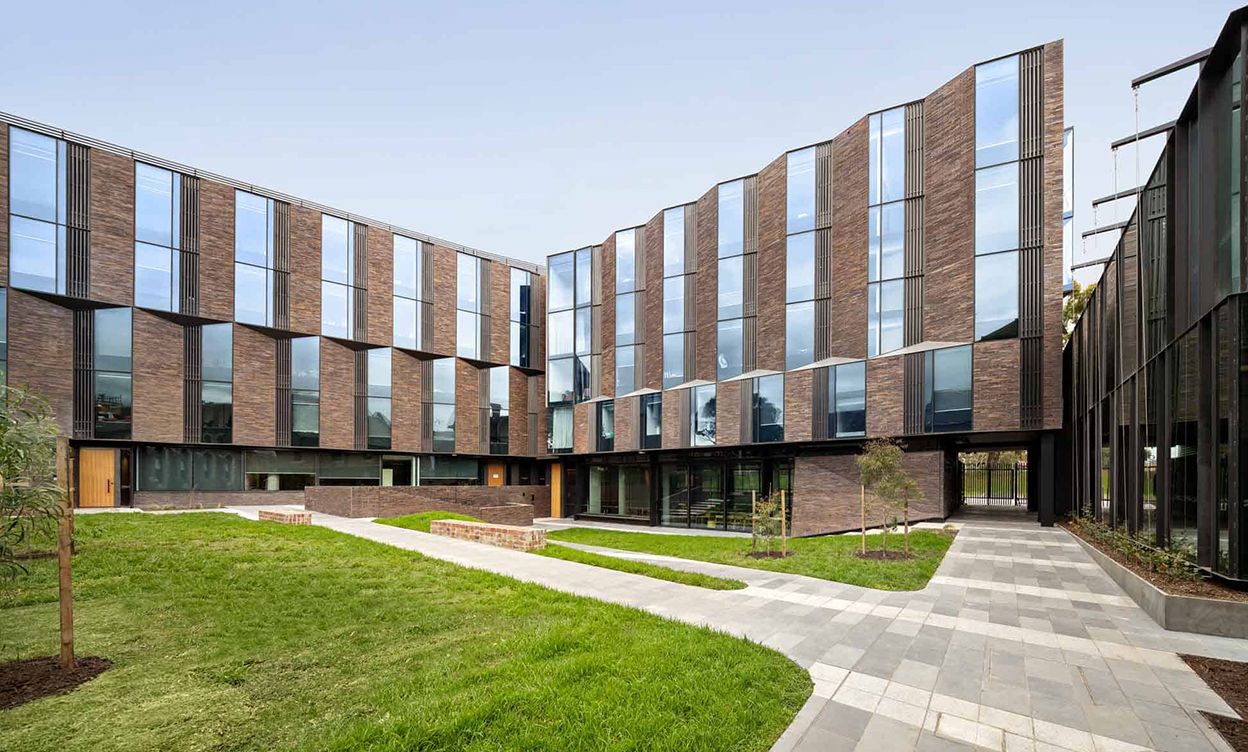
Inheriting the family business isn’t always easy, as anyone in a family business knows, but it’s what you do with it when you’re suddenly in charge that counts.
Dale Kennedy, Managing Director of Harris HMC, joins us in this episode to discuss the weight of expectations in inheriting the family business, the challenges of building trust with staff as generational change occurs, the critical moments that have driven the business’s growth and lots more.
Listen and subscribe
About Harris HMC
Starting as a small commercial carpentry business in the 1980s, Dale’s father, Arthur, built the business into a multi-million-dollar office fit-out business with a strong reputation. In Melbourne, the company is the go-to firm for this line of work. Fast forward to 2006, and the company employed over 50 people with a turnover of $45 million per year. Today, the company employs over 250 staff, with turnover heading towards $250 million. In 2011, Dale took over as the Managing Director of Harris HMC, and it didn’t come without its challenges.
The challenges of generational change in a family business
When Dale took over the company from his father, all the advice his father received was to sell the company and not risk handing it over to his then 22-year-old son. It was a challenging time for Dale personally, too, taking over the company after his girlfriend had passed away tragically. When he came back to work, the company had won a few large projects, and they’d hired many high calibre people to deliver these projects. Unfortunately, the projects didn’t start, and the company began to lose hundreds of thousands of dollars every month. With huge costs and no revenue coming in, Dale could feel the pressure weighing on him, but keeping a balanced perspective was key.
Acknowledge the worst-case scenario, then keep moving
With the personal and financial challenges, Dale faced, having a strong mindset was critical. It took a lot of positioning in his mind, and he was worried about losing the family business and the legacy his father had built. At this time, Dale realised there was power in accepting the possibility that the worst-case scenario may eventuate. He acknowledged this and then put it off to the side to focus on moving forward and not become caught up in fear. As he moved forward, things started to turn around. This level-headed perspective he cultivated early on was instrumental in this period and today as the company continues to grow.
Building trust in the family business
As other family business owners and leaders will attest to, the changing of the guard between generations isn’t easy, and it often brings about a range of people and culture challenges. Respondents to the Pitcher Partners Business Radar (PPBR) report survey have also acknowledged this is a key challenge in family businesses when leadership changes occur, particularly in the case of intergenerational leadership change. Arthur, Dale’s father, had built personal relationships across the business, and people were adjusting to the changes that new leadership brings. Despite the changes, Dale has always focused on keeping Arthur’s approach to work and the company’s ethos alive – always deliver.
Always deliver to your customers and your people
Harris HMC’s company mantra is, ‘We deliver’. The mantra remains a key focus of the company’s approach, even as it grows and changes. Dale’s approach to company culture is inclusive. Everyone needs to know that they count and play an important role in the business. Further, Dale has been focused on making sure the family feel of the business is maintained even as it grows.
Dale noted three key factors in keeping this culture alive:
- get the balance right – growth comes from creating an environment where people can succeed
- get out of the way – ideas should come from your frontlines, not the back office
- give people a sense of empowerment in their current roles and thinking of new ideas.
Connect across the business
Other key factors in fostering the family culture at Harris HMC is investing in people beyond the norm. The company has a “Reach 100” initiative which forms part of people’s performance goals and objectives. In this initiative, people set a personal goal as part of their performance review. If they achieve this goal, they get $100. It’s a way for the company to encourage personal goal setting, and it demonstrates that the business is interested in investing beyond the training and social activities typical of most organisations.
Encourage small and big ideas
Creating a culture where people aren’t afraid to speak up and share innovative thinking has been critical for Harris HMC. The business has ‘Top One Percent’ teams, including volunteers from across the business who meet to work out how the business can do things better. These teams provide small and large ideas to keep moving the business forward. For example, on the smaller end of the scale, one of the teams suggested a personalised key ring system, so people know who had taken large ladders out to sites. This kind of change saves people time in ringing around teams to see who is using something. In contrast, at the bigger picture level, one of the teams looked at how the company could improve its overseas procurement by implementing some checks and processes for goods coming from overseas. Implementing these ideas and having a view to continual improvement and growth has been a key factor in the business’s success.
Setting big goals
Speaking on a pivotal moment in the business’s success, Dale recalls a business planning session that the team had almost ten years ago. Before the session, Dale had produced a 5-year plan, and the general managers provided input on strategies to achieve annual turnover of $100 million in five years. After five years stuck at $80 million in annual turnover, the team decided to rethink its strategy upon revisiting the plan. Instead of getting to $100 million in five years, they set their sites on $200 million turnover in three years – a lofty goal.
After the initial shock of setting such a large goal, they worked backwards by setting one, two- and three-year horizons and splitting these into four sprints per year. It helped the business break down their lofty goals into meaningful short-term objectives, which eventually made their long-term goals a reality. At the end of the third year, the business closed with $190 million in annual turnover and 12 months with $206 million turnover within these three years. Dale saw the benefits of pushing for these periods of growth but knew it should also be balanced with consolidation and strengthening its new foundations.
Take time to embed new systems
After periods of rapid growth, it’s important to embed new systems and focus on the new people in the business. This approach has helped Dale keep the business grounded and get things right before embarking on the next period of growth, providing a backstop to minimise the risk of letting people down.
See the upside in challenges and carefully manage risk
One of Dale’s top lessons since he took over the business from his father is that it’s ok when things don’t work out and that challenges can be an opportunity. At one stage, for example, the business started a workstation business. It ran for a couple of years, but it wasn’t reliable enough to match the company’s strong reputation in the market. By closing this part of the business, Dale learned that it’s important not to be afraid to try new business opportunities and stop these if it’s not working. Perhaps a reflection of Dale’s appetite for risk, he said that he’s comfortable with risk, but it needs to be managed effectively.
Don’t lose sight of your founding values
Looking ahead, Dale’s focus is on continuing the founding values of Harris HMC – always delivering. While revenue growth and headcount are important quantitative markers of growth, Dale says customer experience, the way the business is perceived and how the business’s people perform is just as important. His goal is for Harris HMC to be a company where everyone is engaged, and the work the company delivers is brilliant. It’s certainly a noble goal and an inspiring one for other private and family-owned businesses looking to build a legacy.
Feature image from Harris MC
Return to Radar for Growth and access our other client stories here.







